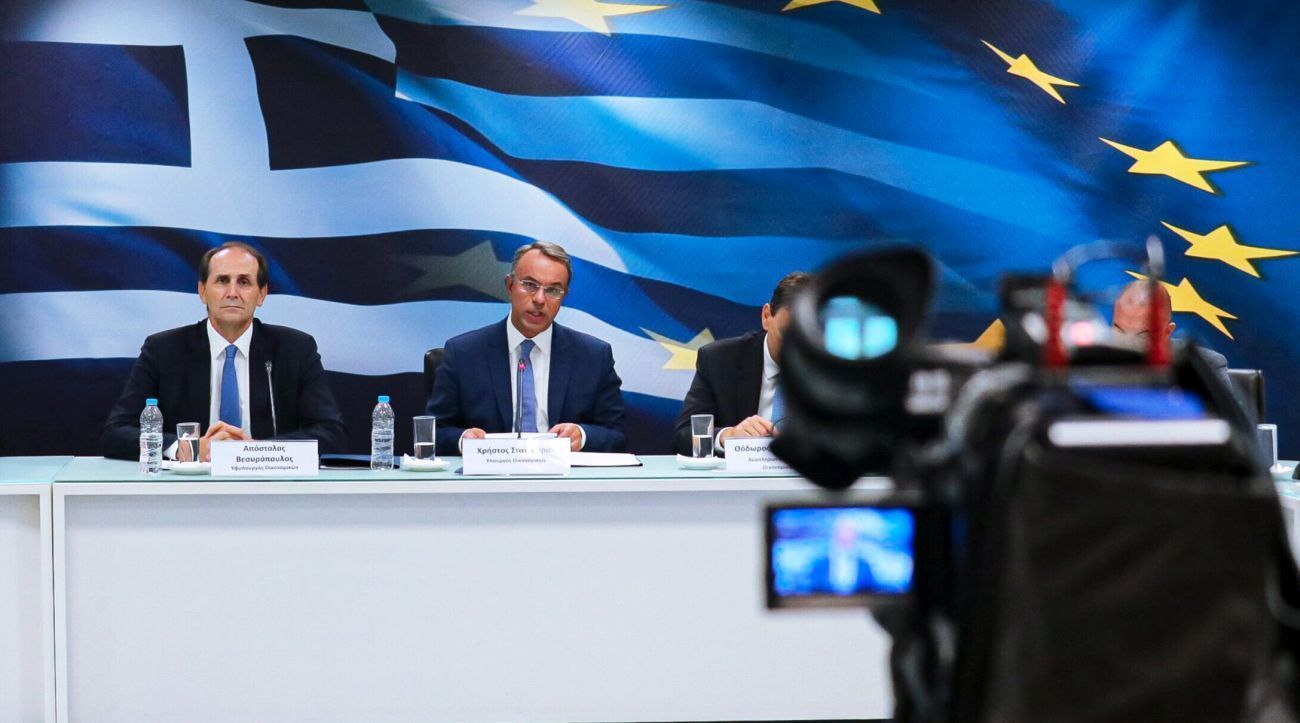Greek PM Announces €5.5bn in Measures to Deal with ‘Hard’ Winter Ahead
Greek Prime Minister Kyriakos Mitsotakis announced a new round of support measures budgeted at 5.5 billion euros for the rest of 2022 and 2023 aimed at supporting Greeks impacted by the ongoing energy crisis and inflationary pressures during the 86th Thessaloniki International Fair (TIF) which kicked off in the northern port city over the weekend.
Mitsotakis said the actions were meant to help “Greek society prepare and deal with a very difficult winter ahead”.
“The measures are necessary and support society in dealing with the harshest winter in decades,” he said. “In this way we are creating a safety net, laying the foundations for a better future”.
The Greek PM said the goal of the aid package was threefold: to relieve citizens, preserve jobs, and stimulate business activity.
Among others, according to the PM and to Finance Minister Christos Staikouras who detailed the actions further today, measures include new tax breaks, an increase in pensions and minimum wage, energy allowances, housing, restoration and appliance renewal subsidies.

Greek Finance Minister Christos Staikouras detailing the relief measures announced aimed at supporting Greeks.
The support includes 2.3 billion euros to address the energy crisis. Measures include:
– a 250-euro handout to low-income households and pensioners;
– opening the recycle appliances program to an additional 200,000 people;
– increasing farmer support;
– raising the heating subsidy for 1.3 million eligible households;
– slashing heating fuel prices by 25 cents for 1.3 million households;
– maintaining lower VAT on transport, coffee, gyms, dance schools, cinema and tourism packages;
– subsiding the installation of photovoltaic panels for some 250,000 households and businesses;
– increasing the basic wage concerning some 1 million employees;
– keeping insurance contributions low;
– abolishing a solidarity tax in the private sector;
– dropping a tax for small businesses with gross revenues of up to 2 million euros per year;
– incentives to make part-timers full time employees;
– a one-off grant to 1 million eligible pensioners and an increase in pensions next year;
– housing subsidies for students;
– restoration incentives under the “Exoikonomo” scheme for unused homes; and
– favorable housing loans for the purchase of a first home; and
– extending the “Tourism for All” subsidized holiday program to more users.
Staikouras reaffirmed that the aid was not posing a threat to the country’s main fiscal goals, adding that he expected the Greek economy to grow 5.3 percent in 2022 and 2.1 percent in 2023 driven by “an impressive increase in investments and exports”.





